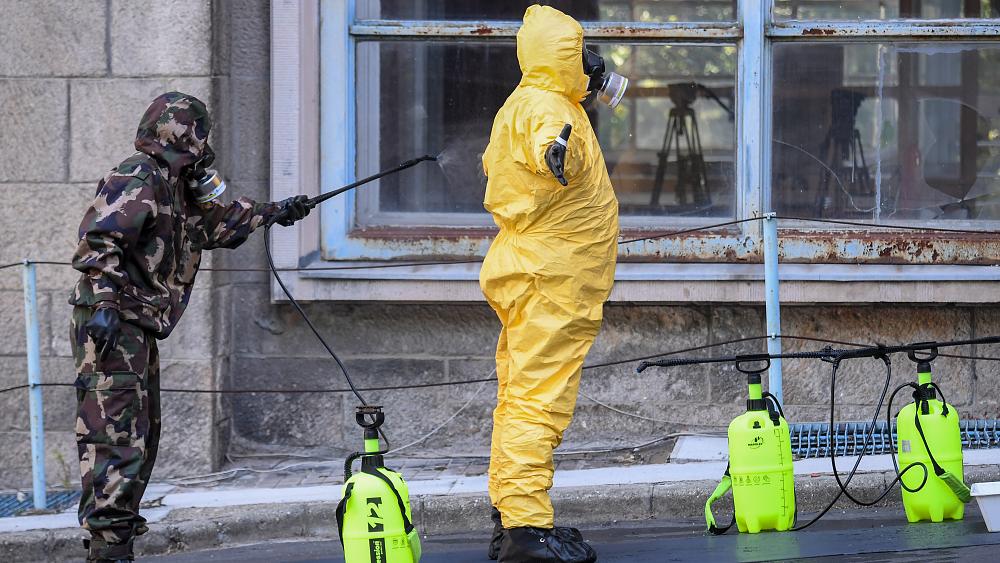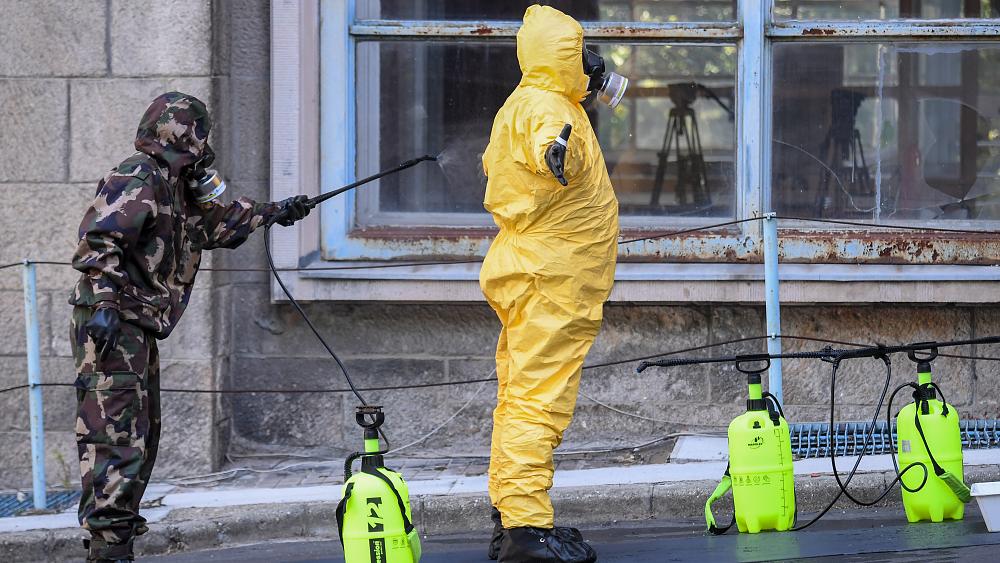
Hungary will close its borders to non-residents from Tuesday to try and curb the increasing number of coronavirus cases, the government said on Friday.
The move comes as several European countries implement stricter COVID-19 measures.
“From September 1, foreign citizens will no longer be allowed to enter the territory of Hungary,” Gergely Gulyás, the prime minister Viktor Orbán’s cabinet chief said during a press briefing.
“There is a risk of introducing the virus and most of the new infections are of foreign origin,” he said, adding “Hungary is green, all other countries are now turning red,” in reference to the traffic light system.
He said Hungarian citizens returning from abroad must quarantine for 14 days or must present two negative tests, which they must pay for themselves.
Hungary’s government indicated that the border closure will stay in place for a month.
The country, which has a population of around 10 million, has around 5,500 COVID-19 cases. More than 600 people have died in Hungary due to the virus.
The move comes amid an uptick in coronavirus cases and as countries implement new precautions.
Europe ramps up COVID-19 measures
On Friday, it became compulsory for people in Paris to wear masks anywhere outside in public. The rules also apply to cyclists, scooter and motorbike riders.
A total of 21 of France’s 100 regions are now in the “red zone”, including that of the Alpes-Maritimes in the south-east, where the first two stages of the Tour de France takes place on Saturday.
The start of the race in Nice will take place “almost behind closed doors”, authorities said. Mask wearing will also be compulsory for competitors.
Meanwhile, Germany’s Chancellor Angela Merkel warned citizens to continue taking the pandemic seriously.
“We have to expect that some things will be even more difficult in the coming months than in the summer,” she said on Friday.
Germans were also told to not travel to high-risk countries or regions.
Cases in Spain are also rising.
On Thursday, the Spanish Health Ministry reported 9,685 new COVID-19 cases, which is the largest spike in infections the country has seen since lockdown measures were eased in May.
As school children return to the classrooms next week, children as young as six have been asked to wear masks in school.
Despite many European countries seeing a rise in new cases, the British government on Friday encouraged workers to return to their offices as concern rises over the effect on coffee bars, restaurants and other businesses.
Prime Minister Boris Johnson’s government plans to roll out a media campaign next week that will encourage employers to show staff members what they have done to protect them from COVID-19 and make it safe to return to traditional workplaces.
Transport Secretary Grant Shapps told the BBC on Friday it was the right time for many people to return to their offices because their children will be going back to school next week.
The World Health Organization reported 24,299,923 worldwide cases on Friday with 827,730 deaths.
See how your country compares in the statistics below.
Related posts:
Views: 0
 RSS Feed
RSS Feed

















 August 29th, 2020
August 29th, 2020  Awake Goy
Awake Goy  Posted in
Posted in  Tags:
Tags: 

















